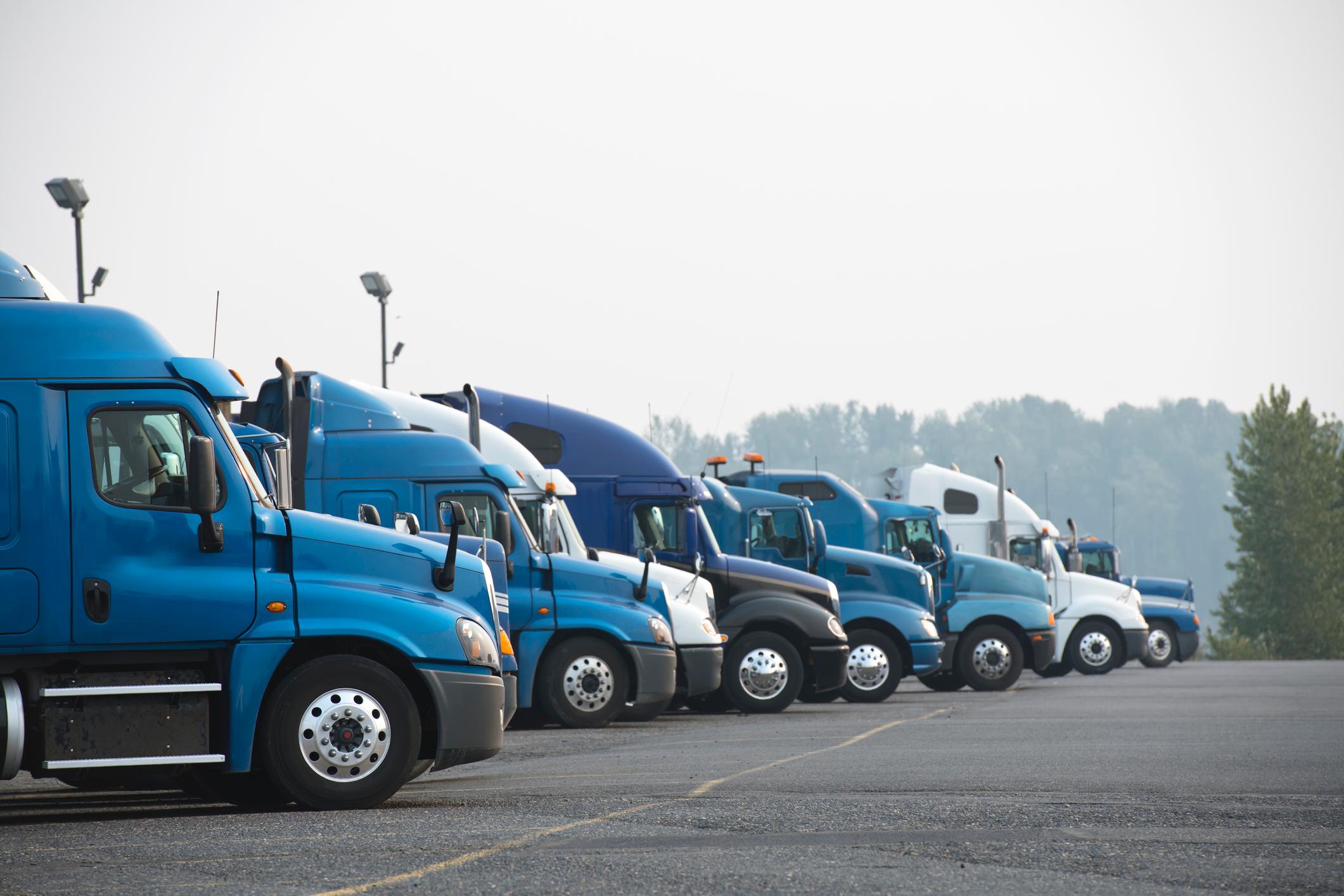MENU
Starting a Business
- Best Small Business Loans
- Best Business Internet Service
- Best Online Payroll Service
- Best Business Phone Systems
Our Top Picks
- OnPay Payroll Review
- ADP Payroll Review
- Ooma Office Review
- RingCentral Review
Our In-Depth Reviews
Finance
- Best Accounting Software
- Best Merchant Services Providers
- Best Credit Card Processors
- Best Mobile Credit Card Processors
Our Top Picks
- Clover Review
- Merchant One Review
- QuickBooks Online Review
- Xero Accounting Review
Our In-Depth Reviews
- Accounting
- Finances
- Financial Solutions
- Funding
Explore More
Human Resources
- Best Human Resources Outsourcing Services
- Best Time and Attendance Software
- Best PEO Services
- Best Business Employee Retirement Plans
Our Top Picks
- Bambee Review
- Rippling HR Software Review
- TriNet Review
- Gusto Payroll Review
Our In-Depth Reviews
- Employees
- HR Solutions
- Hiring
- Managing
Explore More
Marketing and Sales
- Best Text Message Marketing Services
- Best CRM Software
- Best Email Marketing Services
- Best Website Builders
Our Top Picks
- Textedly Review
- Salesforce Review
- EZ Texting Review
- Textline Review
Our In-Depth Reviews
Technology
- Best GPS Fleet Management Software
- Best POS Systems
- Best Employee Monitoring Software
- Best Document Management Software
Our Top Picks
- Verizon Connect Fleet GPS Review
- Zoom Review
- Samsara Review
- Zoho CRM Review
Our In-Depth Reviews
Business Basics
- 4 Simple Steps to Valuing Your Small Business
- How to Write a Business Growth Plan
- 12 Business Skills You Need to Master
- How to Start a One-Person Business
Our Top Picks
What Does Commercial Auto Insurance Cover?

Table of Contents
If your business operates a vehicle, or a fleet of cars or trucks, a key consideration is proper insurance for the vehicles. Choosing the right commercial auto policy is critical, because an accident involving one of your vehicles can be financially devastating for your business if the vehicle is uninsured or underinsured.
A study by The Hartford found that vehicle accidents are the second-costliest insurance claims for small businesses, with an average claim of $45,000. Those costs go up significantly when trucks and fatalities are involved. According to data from the Federal Motor Carrier Safety Administration, the average cost of a large truck crash is $3.6 million per crash with a fatality and $200,000 for those with injuries. There are many required types of business insurance, but it is important to understand when commercial auto insurance is necessary and how to buy it.
Who needs commercial auto insurance?
You need commercial car insurance if your business owns vehicles and/or your employees drive for work-related tasks such as sales calls. This includes auto rentals for conducting business as well as employees using their personal vehicles for work tasks. Commercial auto insurance covers a wide range of vehicles, including cars, sports utility vehicles, pickup trucks – basically any vehicle used exclusively for business.
Types of commercial auto policies
Auto insurance policies for small businesses generally fall within three categories, which insurers offer as either stand-alone policies (commercial auto) or endorsements (riders like non-hired auto) to existing policies.
1. Commercial auto
Commercial auto insurance applies to vehicles, such as trucks and cars, that you or your employees use exclusively for your business. It also helps pay the costs (up to coverage limits) if you or an employee damage someone else’s property or injures a pedestrian while driving.
This policy covers three types of drivers: the named insured (the person who takes out the policy, who is covered even if they weren’t directly involved in the accident), permissive users (employees or anyone else you have given permission to drive the covered vehicle), and omnibus users (people who can be held liable for any accident or negligence committed by you or your permissive users).
2. Hired auto
Hired auto applies to cars or trucks that your business leases, rents, and/or borrows. This policy covers medical bills and third-party damage. You can add a physical damage endorsement to cover your company vehicle as well.
3. Non-owned auto
Non-owned auto covers damage to another person’s vehicle, bodily injury claims that your business caused to someone else in an accident, and/or expenses if your business gets sued for negligence. This coverage is for vehicles that your business doesn’t own, but are used by employees for business tasks.
Since it only provides coverage for the third party, not the policy owner, this insurance doesn’t cover your company’s hired or non-owned vehicles, medical bills should you one of your staff be injured in an accident while driving their own car or a rented vehicle, or liability coverage when you or an employee are driving for reasons unrelated to your business.
How is commercial auto insurance different from personal auto insurance?
A key difference between personal and commercial auto insurance is that a personal auto insurance policy often excludes coverage for business-related use. This type of policy won’t cover any accident or other issue that arises when you or your employees are driving for your business.
Commercial auto insurance also differs from your personal policy in that it often has higher risk and limits. This is because a business vehicle may be carrying anything from employees to hazardous equipment. There could also be a higher impact to your small business with a lawsuit due to an accident, which is why there are often higher legal cost limits on commercial policies. Total commercial auto coverage limits can range from $500,000 into the millions. There are also policy endorsements, or riders, available specifically for commercial auto policies.
Contact an insurance agent if you use your vehicle for work-related purposes and aren’t sure if you need commercial auto insurance for your particular scope of work.
How much commercial auto coverage does my business need?
The state where your business operates has its own auto liability guidelines, so be sure to meet these requirements, many of which entail bodily injury and property coverage. While your exact needs may vary, Nationwide recommends at least $500,000 in liability coverage per vehicle.
If you are leasing your commercial vehicle, your lending institution may require you to carry collision and comprehensive coverage to pay for damages to your vehicle when you are the at-fault party in an accident or the victim of non-collision events (like weather events or vandalism). Unlike liability coverage, both collision and comprehensive coverage have a deductible.
When leasing a vehicle to use in your business, check for specifics that apply to your leasing contract, and speak with an insurance agent to make sure you are adequately covered.
How much does commercial auto insurance cost?
Costs for policies depend on several factors, including your deductible and out-of-pocket expenses. Generally, all other factors being equal, the higher the deductible, the lower the premium.
As a sample, insurer Progressive says its national average monthly cost for commercial truck insurance ranges from $640 for specialty truckers to $982 for transport truckers. Amistad Insurance Services estimates that its commercial car insurance ranges from $600 to $2,500 for each vehicle.
These are some of the factors in the cost of business auto insurance:
- Type of driving and vehicle (e.g., truck transporting goods or cargo vs. cars for sales calls)
- Where and how often you drive for business (frequent short trips vs. occasional longer trips for business)
- Vehicle make, model, year, and cost when new (more expensive vehicles generally have higher premiums)
- Gross vehicle weight, especially if it’s a truck
- Driving records and driver demographics for all company drivers
- Claims history (the higher the number of claims, the higher the risk and premiums)
- The number of commercial autos being insured (the more employees driving, the higher the risk and premiums)
- Coverage options, such as limits, deductibles and added endorsements (the higher the limits and the more riders, generally the higher the premium)
The Hartford recommends paying your entire annual premium upfront rather than monthly, which will get you a discount.
How to buy commercial auto insurance
You can purchase commercial car insurance coverage the same way you would purchase regular vehicle insurance – online, by phone, or through your independent insurance agent or broker.
Before you buy, compare several insurance providers in our buying guide and reviews. Also compare different companies’ customer feedback and ratings, which will give you a good idea of each insurer’s financial standing and ability to pay out claims.
Finally, speak with your insurance agent about your specific business needs. Then, you can pick the best rate with the most comprehensive coverage that fits your company’s risk management plan.













